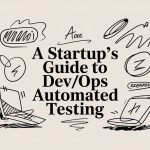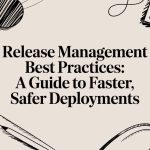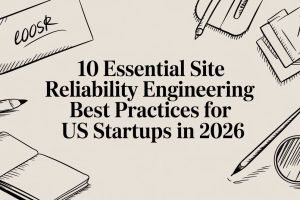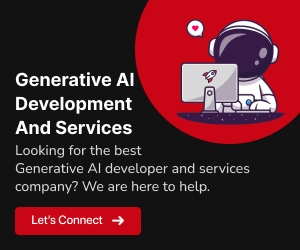Introduction
As the digital landscape continues to evolve at an unprecedented pace, the role of DevOps engineer has become more crucial than ever before. These adept professionals are the linchpin in ensuring seamless collaboration between development and operations teams, enabling organizations to innovate rapidly and deliver high-quality software products to market.
But while the demand for DevOps engineers is soaring across the United States, the question remains: Where are the best places to work as a DevOps engineer in the USA? Finding the right workplace is not just about a job; it’s about shaping your career and your future. It’s about thriving in an environment that not only appreciates your expertise but also nurtures your growth.
How to Get DevOps Engineer Jobs in the USA?

Securing a DevOps engineer position in the USA requires not only the right skills and qualifications but also a strategic approach to the job search process. In this section, we’ll guide you through the steps and strategies to navigate the competitive job market successfully. Whether you’re a recent graduate eager to kickstart your DevOps career or a seasoned professional seeking new opportunities, these insights will empower you to find and secure your ideal DevOps engineer role in the USA.
Navigating the Job Search Process
Identify Your Goals:
Determine your career objectives, whether it’s advancing your current role, switching industries, or pursuing a specific specialization within DevOps.Create a Job Search Strategy:
Develop a clear strategy for your job search, including the type of roles you’re targeting, preferred locations, and the industries or companies that align with your goals.Leverage Job Boards and Platforms:
Utilize job search platforms like LinkedIn, Indeed, Glassdoor, and specialized tech job boards to identify DevOps job openings.Network:
Tap into your professional network, attend industry events, and join DevOps-related groups or forums. Networking can lead to job referrals and valuable insights.
Crafting an Impressive DevOps Resume
Tailor Your Resume:
Customize your resume for each job application, highlighting relevant skills, experiences, and achievements that match the specific job requirements.Emphasize Technical Skills:
Clearly showcase your technical skills, including proficiency with DevOps tools, scripting languages, and cloud platforms.Highlight Achievements:
Use quantifiable achievements to demonstrate your impact on previous projects. For example, mention how you improved deployment times or reduced system downtime.Include Certifications:
List relevant certifications to validate your expertise and commitment to professional development.Show Adaptability:
Highlight your ability to adapt to different tech stacks and environments, emphasizing your versatility.Proofread and Format:
Ensure your resume is free of errors and follows a clean, professional format.
Preparing for Interviews and Assessments
Review DevOps Concepts:
Brush up on essential DevOps principles, practices, and tools. Be prepared to discuss how you’ve applied these in your previous roles.Technical Assessments:
DevOps interviews often include technical assessments or coding exercises. Practice coding challenges related to automation, scripting, or infrastructure as code (IAC).Behavioral Interviews:
Prepare for behavioral interviews by reflecting on your experiences, challenges, and achievements in previous roles. Use the STAR (Situation, Task, Action, Result) method to structure your responses.Questions to Expect:
Anticipate questions about your experience with specific tools (e.g., Jenkins, Docker, Kubernetes), your approach to problem-solving, and your ability to collaborate with cross-functional teams.Ask Questions:
Prepare thoughtful questions to ask the interviewers. Inquire about the team’s DevOps practices, company culture, and the challenges the organization faces.Soft Skills:
Emphasize your soft skills, such as effective communication, teamwork, and adaptability, as these are crucial in DevOps roles.
Building an Online Presence
LinkedIn Profile:
Optimize your LinkedIn profile to showcase your skills, experiences, and certifications. Connect with professionals in the DevOps field and follow relevant industry influencers.GitHub or GitLab:
If applicable, maintain a GitHub or GitLab profile with your coding projects and contributions. This demonstrates your coding skills and commitment to open-source collaboration.Online Portfolio:
Consider creating a personal website or portfolio showcasing your projects, blog posts, or case studies related to DevOps.
Continuous Learning
Stay Updated:
DevOps is a rapidly evolving field. Continuously update your skills by learning about new tools, practices, and industry trends.Attend Workshops and Conferences:
Attend DevOps-related workshops, webinars, and conferences to expand your knowledge and network with professionals in the field.Contribute to Open Source:
Contribute to open-source projects relevant to DevOps. This not only enhances your skills but also builds your online presence.
Landing a DevOps engineer job in the USA requires a combination of technical expertise, effective communication, and a strategic job search approach. By following these steps, you can increase your chances of securing your desired DevOps role.
Factors to Consider When Choosing a Workplace

When embarking on your journey as a DevOps engineer and searching for the ideal workplace, several crucial factors come into play. These factors can significantly influence your job satisfaction, career growth, and overall work experience. Let’s delve into the key considerations when evaluating potential workplaces:
Company Size:
Industry:
Location:
Remote Work Options:
Workplace Culture:
Collaboration Opportunities:
Opportunities for Skill Development:
Work-Life Balance:
Large Corporations: Larger tech corporations often offer stability, competitive salaries, and comprehensive benefits packages. They may have well-established DevOps teams and resources for professional development.
Mid-sized Companies: Mid-sized firms can offer a balance between stability and innovation. You might find opportunities to have a meaningful impact on projects and shape DevOps practices.
Startups: Startups are known for their agility and innovative cultures. Working at a startup can provide hands-on experience, opportunities for rapid skill development, and a chance to work on cutting-edge projects.
Consider the industry or sector that aligns with your interests and career goals. DevOps practices can vary between industries, with some sectors being more advanced in adopting DevOps than others. For instance, fintech and e-commerce companies often prioritize DevOps to ensure robust and secure systems.
The geographical location of your workplace can have a significant impact on your daily life. Consider factors such as cost of living, commute times, and the availability of tech hubs. Major tech hubs like Silicon Valley, Seattle, and Austin offer a plethora of DevOps opportunities.
The flexibility to work remotely has become increasingly important, especially in the wake of global events. Evaluate whether potential employers offer remote work options, and if so, to what extent. Remote work can provide better work-life balance and access to job opportunities outside your immediate area.
Workplace culture plays a pivotal role in job satisfaction. Research the company’s values, mission, and culture to ensure they align with your own. A positive and inclusive culture can foster collaboration and creativity.
DevOps is all about collaboration between development and operations teams. Look for workplaces that promote cross-functional collaboration and a DevOps culture. Opportunities for collaboration can lead to more efficient project workflows and skill-sharing.
Assess the potential for skill development and career growth. Does the workplace offer training, mentorship programs, or opportunities to work on challenging projects? Consider how the job will help you advance your DevOps skills and career.
Achieving a healthy work-life balance is essential for long-term career satisfaction. Evaluate the workplace’s expectations regarding working hours and overtime. A healthy work-life balance ensures you can sustain your career growth.
By carefully considering these factors when choosing a workplace, you can make an informed decision that aligns with your career goals and personal values. Each DevOps engineer’s ideal workplace may differ, so it’s essential to prioritize what matters most to you in your professional journey.
Also read: A Beginner’s Guide to DevOps: Understanding, Implementing, and Thriving – US Guide
The Best Cities for DevOps Jobs in the US

When considering a career in DevOps, the choice of location can significantly impact job opportunities and overall quality of life. In this chapter, we’ll explore some of the best cities in the USA for DevOps jobs, taking into account factors that make them attractive destinations for DevOps professionals.
1. San Francisco, California:
Known as the tech capital of the world, San Francisco boasts a thriving tech industry, including numerous startups and tech giants. The city offers a high demand for DevOps engineers, competitive salaries, and a vibrant tech community.2. Seattle, Washington:
Home to tech giants like Amazon and Microsoft, Seattle is a hub for technology and innovation. The city offers a strong job market for DevOps professionals and a high quality of life.3. Austin, Texas:
Austin has emerged as a tech hotspot, attracting companies and professionals alike. It offers a lower cost of living compared to Silicon Valley and a growing demand for DevOps talent.4. New York City, New York:
NYC is a global business and technology hub, offering a diverse range of DevOps opportunities in various industries. It also provides access to a rich cultural scene.5. Boston, Massachusetts:
With its strong educational institutions and a growing tech scene, Boston offers DevOps professionals opportunities in sectors like healthcare, finance, and education.6. Raleigh-Durham, North Carolina:
The Research Triangle Park area in North Carolina has seen significant tech growth. It’s known for its favorable business climate and demand for DevOps expertise.7. Denver, Colorado:
Denver combines a strong tech sector with a high quality of life and outdoor recreational opportunities. The city has a growing demand for DevOps engineers.8. Atlanta, Georgia:
Atlanta’s diverse economy includes tech companies, finance, and logistics. It offers a lower cost of living than some tech hubs and an emerging tech scene.9. Chicago, Illinois:
Chicago’s business landscape extends to technology, offering DevOps professionals opportunities in various industries, including finance, healthcare, and transportation.10. Portland, Oregon:
Known for its tech-friendly environment, Portland offers a balance between work and lifestyle, with opportunities in tech companies and startups.
Factors That Make Cities Ideal for DevOps Professionals

Several factors contribute to a city’s attractiveness for DevOps professionals:
Job Opportunities:
A city with a robust tech sector and a high concentration of tech companies is likely to have more DevOps job openings.Quality of Life:
Consider factors like cost of living, climate, recreational activities, and cultural offerings that impact your overall quality of life.Tech Community:
Cities with active tech communities often provide networking opportunities, conferences, and meetups that can enhance your professional growth.Salary Levels:
Compare average salaries in your field for different cities, considering factors like the cost of living.Industry Specialization:
Some cities may specialize in specific industries, such as finance or healthcare, offering DevOps roles tailored to those sectors.Growth Potential:
Consider the long-term outlook for tech growth in a city, as it may affect your career advancement opportunities.
When choosing a city for your DevOps career, it’s essential to align your preferences and priorities with the unique characteristics of each location. Whether you prioritize a vibrant tech scene, work-life balance, or specific industry opportunities, there’s likely a city that suits your career aspirations.
Top 5 Companies to Work as a DevOps Engineer in the USA
1. Geekyants

Research. Collaborate. Build.
Visit Website
GeekyAnts is a design and development studio that specializes in building solutions for web and mobile that drive innovation and transform industries and lives. We hold expertise in state-of-the-art technologies like Next.js, React Native, Flutter, Node, GraphQL and more.
Contact Us
- Team Size: 250 – 999
- Hourly Rate: $25 – $49
- Location: California, USA
- Average Review Rating: 4.9
- Service Lines: Mobile App Development (50%), Web Development (40%), UX/UI Design (10%)
- Clients: Enterprise (>$1B) (60%), Midmarket ($10M – $1B) (30%), Small Business (<$10M) (10%)
- Application Platforms: Amazon (30%), Google app engine (25%), Heroku (25%), Azure Platform (20%)
2. Algoworks
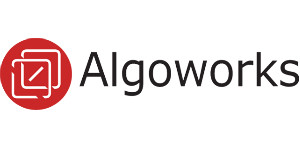
Simplifying technology. Smartly. Disruptively. Globally.
Visit Website
Algoworks is a trusted DevOps consulting company renowned for its comprehensive suite of services. With expertise in automation, integration, and development, they enable businesses to optimize their operations effectively. Their experienced team crafts tailor-made solutions, ensuring a seamless transition to DevOps methodologies. Visit their website for more information.
Contact Us
- Team Size: 500-1k
- Hourly Rate: $25 – $49
- Location: California, USA
- Average Review Rating: 4.7
- Service Lines: Mobile App Development (80%), CRM Consulting and SI (20%)
- Mobile Focus: Games (65%), Other enterprise apps (25%), Social (10%)
- Clients: Enterprise (>$1B) (50%), Midmarket ($10M – $1B) (40%), Small Business (<$10M) (10%)
3. XenonStack

A Stack Innovator
Visit Website
XenonStack specializes in product engineering and technology services, offering advanced digital enterprise solutions. Leveraging DevOps, Big Data Engineering, Data Analytics, and more, they empower businesses to transform their operations and harness the potential of data assets. Their expertise in cloud consulting, including AWS, Google Cloud, and Azure, makes them a preferred DevOps consultancy.
Contact Us
- Team Size: 10-250
- Hourly Rate: $25 – $49
- Location: California, USA
- Average Review Rating: 4.5
- Service Lines: BI & Big Data Consulting & SI (25%), Cloud Consulting & SI (25%), AI Development (15%), IT Managed Services (15%), Cybersecurity (10%), Enterprise App Modernization (10%)
- Clients: Midmarket ($10M – $1B) (55%), Enterprise (>$1B) (25%), Small Business (<$10M) (20%)
- Cloud Computing Focus: Natural Language Processing (35%), Machine Learning (30%), Cognitive Computing (20%), Chatbots & Conversational AI (15%)
4. Contus

Gateway of Digital
Visit Website
Contus is a premier USA-based DevOps company that excels in providing innovative solutions. Their adept team harnesses cutting-edge technology to enhance development and operations, ensuring accelerated product delivery. With a client-centric approach, they tailor DevOps strategies to individual business needs, showcasing wide-ranging expertise across various industries.
Contact Us
- Team Size: 250-500
- Hourly Rate: $25 – $49
- Location: Atlanta, USA
- Average Review Rating: 4.2
- Service Lines: IoT Development (30%), Mobile App Development (20%), Web Development (20%), AR/VR Development (10%), Custom Software Development (10%), Wearable App Development (10%)
- Cloud Computing Focus: AWS (100%)
- Clients: Midmarket ($10M – $1B) (50%), Small Business (<$10M) (30%), Enterprise (>$1B) (20%)
5. Mission Cloud

Accelerate your business and achieve your goals
Visit Website
Mission Cloud is dedicated to providing cloud-based DevOps solutions that empower businesses in the digital age. They help organizations embrace agile methodologies and automate software delivery pipelines, driving efficiency and innovation. With certified DevOps engineers and a deep understanding of cloud platforms like AWS, Azure, and GCP, Mission Cloud stands out as a leader in the field.
Contact Us
- Team Size: 10-250
- Hourly Rate: $100 – $199
- Location: Los Angeles, USA
- Average Review Rating: 3.9
- Service Lines: Cloud Consulting & SI (25%), AI Development (20%), IT Managed Services (20%), IT Strategy Consulting (20%), BI & Big Data Consulting & SI (15%)
- Cloud Computing Focus: Machine Learning (100%), Chatbots & Conversational AI (30%), Cognitive Computing (30%)
- Clients: Midmarket ($10M – $1B) (50%), Small Business (<$10M) (30%), Enterprise (>$1B) (20%)
Also read: How to Stay Up-to-Date on the Latest DevOps Trends in the USA
Conclusion
In this comprehensive guide to DevOps careers in the USA, we’ve navigated the dynamic landscape of software development and operations, exploring the demand for DevOps engineers, emerging trends, and pathways to success. DevOps professionals play a pivotal role in accelerating software delivery, enhancing quality, and fostering collaboration. The future of DevOps careers is bright, driven by increased adoption, the integration of security practices, and the rise of cloud-native and AI-driven technologies. Aspiring DevOps professionals are encouraged to acquire technical skills, pursue continuous learning, and build a strong professional network. With adaptability and innovation at its core, the DevOps journey promises exciting opportunities and the chance to shape the future of software development and operations.




